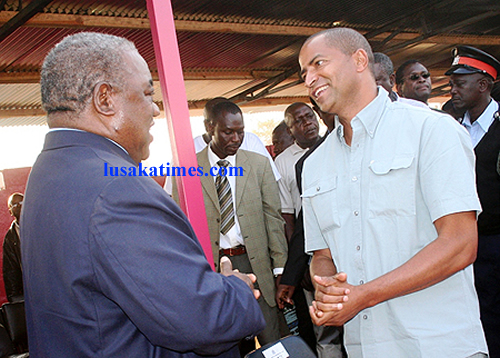
By Scott A Morgan
The Elections in Sudan have been concluded. In the views of several people the outcome was already decided before the first ballot was cast. Omar al-Bashir has been reelected President of Sudan. This fact means that the future regional stability of Central Africa may now be in jeopardy.
It has also been widely held by several Governments including the United States that this was a preliminary run. The real Elections will occur in January 2011. This will be when the Southern Part of Sudan will get a choice either to remain part of Sudan or to vote for Independence and become the Newest Country in Africa. Already this fact has some people worried.
The Background heading into this increasingly crucial election could not be more riddled with tension. Although the African Union and the Arab League confirmed that the elections were Free and Fair, The three states which guarantee that the Comprehensive Peace Accord is followed (US, UK and Norway) found that the Cycle was riff with Irregularities. South Africa stated that the Election Process seemed to be rushed in their Opinion.
One Area of Concern was Darfur. It was one area where a couple of interesting events occurred. 4 South African Peacekeepers were kidnapped hours after the polls opened. At anytime their release is expected by the United Nations. Some of the most glaring problems with the vote did occur in Darfur. On April 19th the UN announced that renewed clashes between the Sudanese Military and the Abdel Wahid Faction of the Sudanese Liberation Army were disrupting Aid Supplies to an estimated 100,000 refugees.
This is not the only action that is being conducted by the Sudanese Military at this time. There are reports that the Sudanese Army have moved into the Blue Nile State as well. Blue Nile which is close to Ethiopia was the scene of some of the most violent fighting during the 1983-2005 war. Both Factions have been consulting with Prime Minister Zenawi in Ethiopia since the Election started.
Already the interesting Diplomacy has begun in the region. President Deby of Chad has announced that his Government would NOT support the Referendum on Southern Independence under any Circumstance. He would prefer to have Sudan remain as one entity. His stated logic is that He fears that an insurgency that operated in the 1980s would resume again. This statement is causing some consternation among the People of Southern Sudan at this time.
Another Country that is watching this situation Develop is the Democratic Republic of the Congo. This Country which has been plagued by War conducted by Regional Militias and its neighbors since the 1990s is very rich in natural resources. There have been some calls for this Country which is the largest Country in Africa to be partitioned as well. How the referendum in Southern Sudan goes could be a factor in the future of the DRC.
If one takes this information and reviews it there is one sad conclusion that can be reached. The situation in Central Africa is very similar to that in the Balkans in 1914. Countries having designs on their neighbors and supporting Opposition Movements both legitimate political actors and irregular forces bent on exploiting people. There are Elections occurring in Rwanda this summer. The Actions of that Government towards the Opposition and the Independent Media outlets are an additional Source of Tension.
Before the Referendum will take place there will be an effort at posturing by various actors in the region and at the United Nations. There will be calls to delay the Referendum. Rebel Groups in Darfur and other Countries in Africa will find their actions under scrutiny as well in various capitals including Washington, Beijing and Canberra.
As soon as the Results are released we can start the clock for the Real Elections in Sudan. It will be as the Chinese say “Interesting Times.”
The Author Publishes Confused Eagle on the Internet and comments on US Policy towards Africa. Confused Eagle can be found at confusedeagle.livejournal.com











